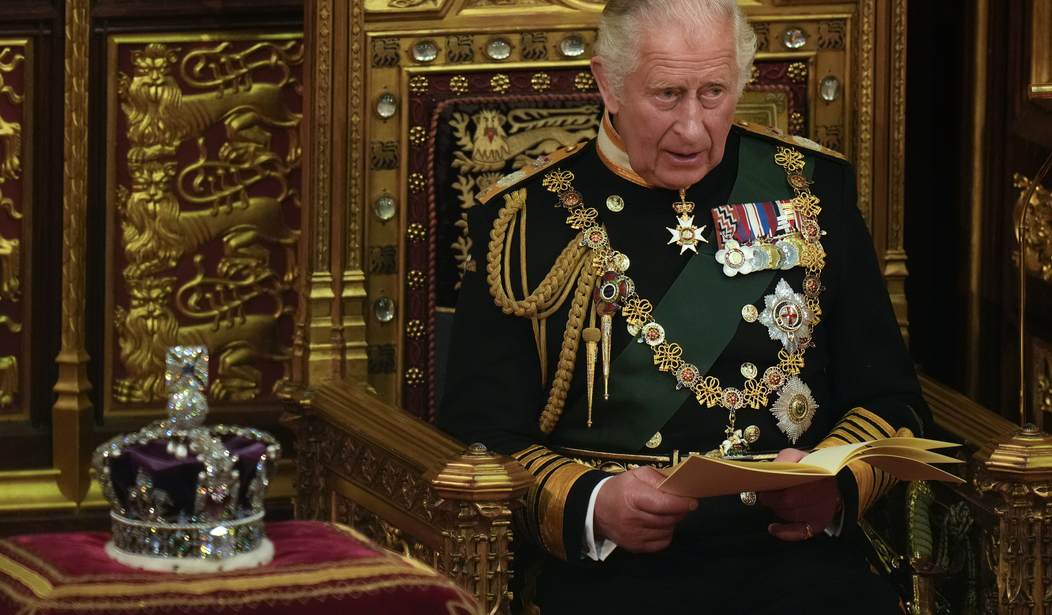I will confess that I’m not someone who pays very much attention to the royalty in Great Britain or other countries with monarchies and the comings and goings of the royals, so I rarely write anything on the subject. It’s not that there’s anything wrong with such an interest, but it’s just really never been my thing. But my interest was piqued this week when I saw this headline from Conor Friedersdorf at The Atlantic. “King Charles Should Get Ready to Abdicate.” The man has had the job for barely a week and he hasn’t even been officially crowned yet. What could he possibly have done in such a short period of time to bring Friedersdorf’s wrath down upon him so rapidly? As it turns out, he hasn’t done anything wrong (not that the King has many non-ceremonial governmental duties to begin with). The author’s complaint isn’t with Charles III’s performance. It’s that he’s too old and he should clear the way for his son to ascend while he’s still in the prime of his life. Friedersdorf is calling for an end to gerontocracy.
When Britain’s longest-serving monarch, Queen Elizabeth II, died last week, a 73-year-old man ascended to the throne. King Charles III, né Prince Charles, is expected to continue his longtime focus on climate change among his many duties as the United Kingdom’s head of state. If he lives as long as his mother did, he could spend more than two decades as monarch.
But a more consequential use of Charles’s reign would be to rule briefly and abdicate at 75––the age when British judges are compelled to retire from the bench––while touting the importance of passing the throne to Prince William in his son’s prime rather than his dotage.
King Charles III ought to issue a royal proclamation underscoring that this approach is a royal rebuke to the international trend toward gerontocracy, whereby leaders delay handing off power to the next generation long past what serves the public good.
I’m not entirely unsympathetic to Friedersdorf’s premise here. This tendency toward a growing gerontocracy around the globe is clearly an issue that should be publicly examined. The United States is certainly a prime example. The author correctly notes that America currently has seven senators who are in their 80s. Without naming names, he points out that both current and former members of Congress have clearly struggled with their speaking abilities and displayed other signs of possible dementia. Curiously, though, Friedersdorf manages to finish the entire article without once mentioning Joe Biden’s name.
Even with that one oversight noted, the author does make some excellent points. Cognitive decline does impact most, but not all people as they age, though the degree to which they demonstrate these effects varies. He also raises a valid issue in saying that a representative government should be representative of the people it serves. Younger people outnumber the elderly and they deserve a say in determining the policies that chart the course of the nation they themselves will eventually lead.
Of course, we don’t want to go to an extreme in the opposite direction and start elevating only teenagers. There is still much to be said for the old adage about wisdom coming with age. But that same wisdom eventually departs for most of us at some point. And I say this from a position of experience as the frequency of “senior moments” I experience continues to accelerate as I pass my mid-sixties. Such is life, I suppose.
Also noted in the linked essay is the fact that these deficiencies can afflict world leaders more frequently and to a greater degree than the rank-and-file commoners they lead. National leaders generally keep grueling schedules that run from early morning until late at night and they can experience tremendous pressure during times of crisis. All of those factors can exacerbate cognitive decline, dementia, and related maladies. And the consequences of a person in that sort of role experiencing a breakdown in their mental acuity can be vastly more impactful than a situation where the local dogcatcher begins forgetting where he left his leash.
In the end, it is the people of each nation who will have to make this decision if a turn away from gerontocracy is to take place. That’s not true for Great Britain’s royalty because of the rules of royal succession, but the monarch really doesn’t wield any serious power over national policy or foreign engagements. Elected officials are a different matter, though. If America doesn’t want more helpings of geriatric men and women stumbling over their words when addressing the nation or awkwardly falling off of their bicycles while the cameras are rolling, the voters will need to start nominating people with a bit more gas left in their tanks. But if 2024 witnesses a repeat battle between two men who are well into their seventies (or eighties in Joe Biden’s case) then what we wind up getting will be precisely what we deserve, for better or worse.








Join the conversation as a VIP Member